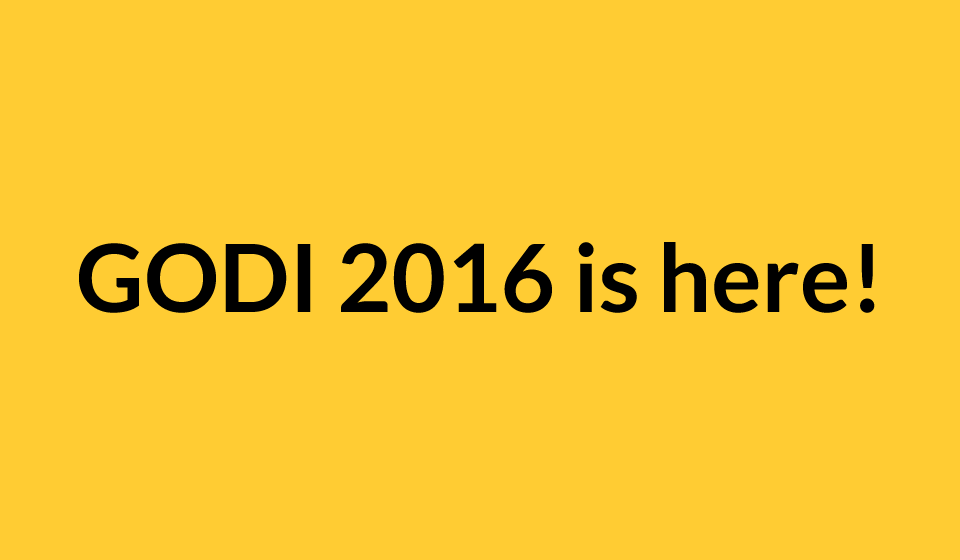We are happy to announce that The Global Open Data Index (GODI) 2016 is officially live!
After months of hard work, taking the community feedback and building it into the new methodology, and redesigning the whole survey from the questions to interface and how you interact with it.
This is the fourth year that we will evaluate the quality and availability national governments open data. We expect this edition of GODI to be the most comprehensive edition and with the most submitters ever. To do this, we need your participation! We will explain a couple details so you can start submitting as soon as possible.
Timeline
This year we’ll accept submissions from today until the 15th of December. After this process, the data will have a reviewing period that will start in January.
After the review stage, we will send the Index to governments for commenting. This is done to check for errors that might have come up. The final decision regarding a dataset will be in the reviewer’s hands. After all of the reviews are completed and the datasets are evaluated by their respective governments, a country’s final score will be shown publicly on the Index website.
The Survey
The submission process is quite easy, just go to global.survey.okfn.org, find your country and click “add” on the dataset you want to evaluate. For this year we will ask people to log in with facebook or google. This is only for authentication reasons, we won’t store any of this information in the system and if you want, you can choose to submit anonymously.
The index is built in two units — places, which represent national governments or other official jurisdictions, and datasets. In this year’s Index, we have 15 datasets representing different governmental themes. Each dataset has a description followed by a list of characteristics. These characteristics describe the dataset and seek to assist you in finding the right dataset to evaluate. Each of these datasets is first evaluated by a contributor that responds to the questions in the survey.
If you have submitted previously to the Index, one of the first changes you’ll notice is the survey has been completely redesigned by our great Sam Smith. Second, you’ll find a couple of questions where we ask how much you know about the dataset being evaluated and about open data. This information will help us get a clearer notion of who is submitting and how easy or difficult it is for people to find the data.
As we mentioned in previous blog posts, we changed the way we frame the questions. We tried to make them clearer and more straightforward. If you need to add any information to the question, there is a comment section for each question, where you can tell us more about where you find the information or why you might not have found it. We encourage you to comment as much as you can, this extra info will be really valuable.
If you get lost
This is a collective effort. If you have a question about the Index, you can look at the FAQ, maybe you’ll find some answers. If you are trying to submit and something isn’t clear, you can always ask in our forum. If you want very specific info or need a quicker answer, you can always write to index@okfn.org and our team will get back to you with as many answers as we can.
Thank you for submitting!
Oscar Montiel is the international community coordinator at Open Knowledge Foundation










Your headline confuses ‘government openness’ with the availability of open data from a country’s government. The latter can contribute to the former, but the two are not synonymous, and it’s about time organisations like OKI stopped conflating the two.
Why don’t global.survey.okfn.org import answers from previous year’s survey for those categories that have not changed? Its not often that governments stop publishing datasets they have previously published.
責任感がおもいきり強く、社会への柔軟さに富む。
Thanks for sharing such a pleasant opinion, piece of
writing is pleasant, thats why i have read it entirely